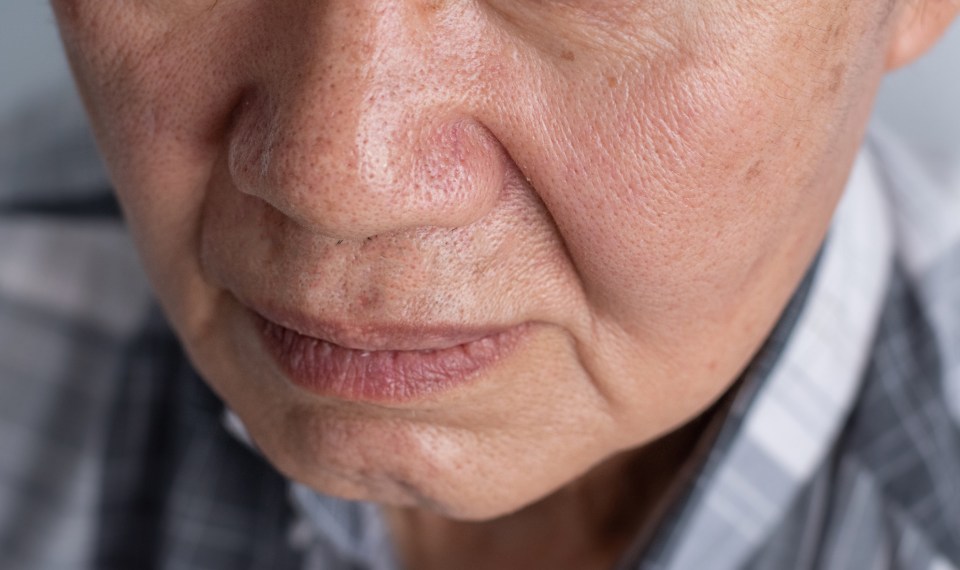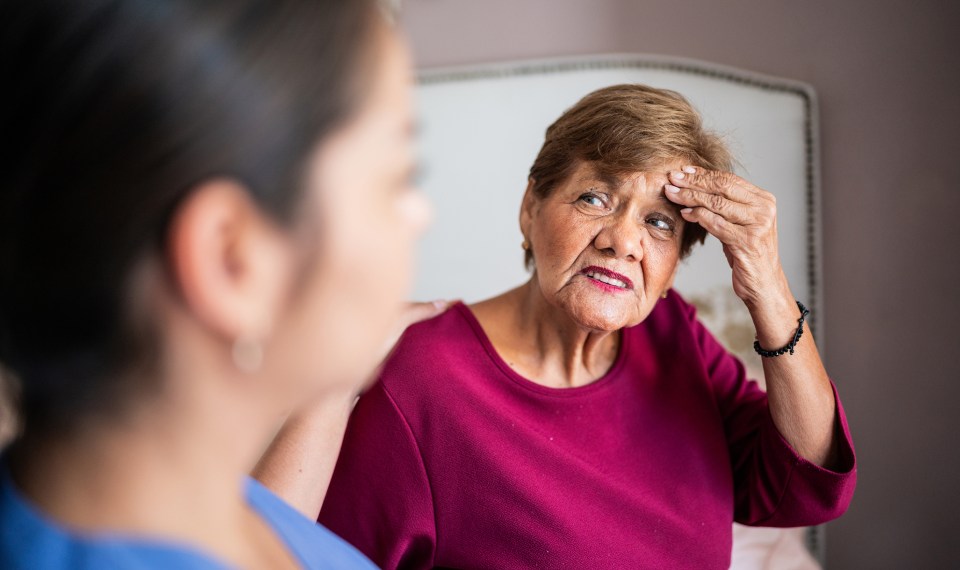Parkinson’s disease is a neurological disorder that impacts movement, including the muscle movement required for speech.
Many individuals with Parkinson’s experience what is known as Parkinson’s voice. This quiet, mumbling voice can be one of the early symptoms of Parkinson’s. As the disease progresses, it can become more difficult to speak and even swallow, but there are treatment options that can help improve Parkinson’s voice and, in some cases, even reverse it.
Lisa Hale, a speech language pathologist at Encompass Health Rehabilitation Hospital of Sugar Land, said speech therapy can help improve the weak voice associated with Parkinson’s and can also help with swallowing issues that can occur as the disease progresses.
“About 85% of people with PD develop a too quiet, difficult to understand voice,” Hale said. “Speech therapy helps by directly focusing on making the voice loud, taking big breaths and opening the mouth wider.”
What Does Parkinson’s Voice Sound Like?
A Parkinson’s voice is very low in volume and sounds like the person is mumbling. The voice is also usually slow, but some individuals may talk at a fast pace. Those with Parkinson’s may also talk in a monotone voice without emotion.
Other common speech and communication impairments associated with Parkinson’s include:
- Slurred speech
- Trailing off mid-thought when speaking
- Stuttering or stammering
- Difficulty finding the right words
Why Does Parkinson’s Impact Voice?
Parkinson’s impacts the voice because of a decrease in dopamine levels in the extrapyramidal system. The extrapyramidal system is a part of the motor system that controls the involuntary movements that support voluntary movements; this includes the movement required for speech.
“Parkinson’s also impacts a person’s awareness of the change in their voice and loudness,” Hale said. “This makes it difficult for a person to correct themselves when their voice changes.”
The decrease in dopamine also affects other bodily functions that require movement, which explains some of the other symptoms of Parkinson’s including:
- Hand tremors
- Bradykinesia, or slowness in movement
- Stooped posture
- Shuffling gait
How Can Speech Therapy Help Those with Parkinson’s?
Speech language pathologists are experts in communication and swallowing disorders and can help address Parkinson’s voice issues.
Since individuals with Parkinson’s don’t realize that their voice has changed and may be difficult to hear and understand, speech therapy will focus on speaking loudly. Programs like LVST Loud, PWR! and Speak Out! are the most common and effective, Hale said.
- LVST Loud: This program trains individuals to speak at a more normal level, so they can better engage with their family and friends. It focuses on helping them “recalibrate” their thinking, so they are more aware of how loud they are talking.
- PWR!: Parkinson’s Wellness Recovery—PWR!—is an exercise program designed for people with Parkinson’s. In addition to physical exercise, the program also incorporates vocal exercises to help improve and reverse Parkinson’s voice.
- Speak Out!: Through education and speech therapy, Speak Out! teaches those with Parkinson’s to make speaking more of an intentional act rather than an automatic one to improve their speech and swallowing.
What to Look for in a Speech Therapy Program
Hale advises finding a licensed speech language pathologist who specializes in Parkinson’s and is certified in LSVT, PWR! or Speak Out!.
For a more holistic approach to the symptoms of Parkinson’s, inpatient rehabilitation could be appropriate. In this setting of care, patients receive speech therapy, as well as physical and occupational therapy. The combination of the three can help treat all the symptoms associated with Parkinson’s, as well as empower the patient to live more independently and understand how to manage their condition.
The content of this site is for informational purposes only and should not be taken as professional medical advice. Always seek the advice of your physician or other qualified healthcare provider with any questions you may have regarding any medical conditions or treatments.



